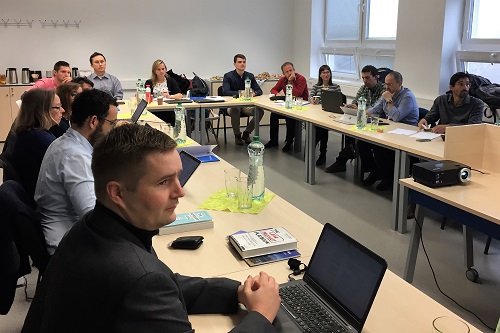
How do behaviours and lifestyles influence our mobility choices? The MoTiV project is exploring a new definition of value of travel time.
A recent research by the University of the West of England found that a 20-minute increase in commute time is as bad as a 19 per cent pay cut for job satisfaction: every extra minute spent travelling to and from work reduces job and leisure time satisfaction, increases strain and worsens mental health. According to the study, long journeys by bus were associated with the biggest reduction in job satisfaction, while walking to work or working from home increased job satisfaction, and cycling to work also improved employees' perception of their own health.
 Value of travel time is generally considered within its economic dimension (time and cost savings). In the last years a new trend is emerging, connected with the dynamics of individual preferences, behaviours and lifestyles that influence travel and mobility choices in order to broaden the concept of individual well-being with indicators such as calories burnt, carbon footprint and overall satisfaction for the use of travel time in relation to planned activities.
Value of travel time is generally considered within its economic dimension (time and cost savings). In the last years a new trend is emerging, connected with the dynamics of individual preferences, behaviours and lifestyles that influence travel and mobility choices in order to broaden the concept of individual well-being with indicators such as calories burnt, carbon footprint and overall satisfaction for the use of travel time in relation to planned activities.
Exploring the new Value of Travel Time (VTT) paradigm by introducing a new definition and methodology for its estimation based on the value proposition of mobility is the main goal of the MoTiV project. The conceptual framework will be validated through data collection and evaluation in at least 10 EU countries.
The mobility and behavioural dataset will be collected using a mobile application developed by the project consortium. With this mobile app, end-users will be able to more easily track, understand, and re-evaluate travel decisions to make the most of their free time in accordance with personal preferences, lifestyle, interests, and budget.
 The target is to engage in the data collection process a minimum of 5.000 participants actively using the MoTiV app for at least two weeks. Besides validating the conceptual framework, the dataset will be made available to the scientific community as an Open Dataset to stimulate further research in this area.
The target is to engage in the data collection process a minimum of 5.000 participants actively using the MoTiV app for at least two weeks. Besides validating the conceptual framework, the dataset will be made available to the scientific community as an Open Dataset to stimulate further research in this area.
The results of the project are expected to contribute to the development of new mobility services and to the extension of existing applications for informed travellers. MoTiV will as well provide a direct value to the end users by allowing to easily track, understand, and re-evaluate individual mobility and travel decisions, with the aim making best use of one’s own time in line with personal motivations, preferences, and lifestyle.
Launched in Žilina (Slovakia) last 14-15 November 2017, MoTiV is a Horizon2020 project coordinated by the University of Žilina. The kick-off meeting gathered together participants representing the seven Consortium members to discuss objectives, strategies, activities and the action plan as well as the MoTiV conceptual framework and the European-wide data collection campaigns.
The European Cyclists’ Federation, as consortium member, will coordinate the dissemination activities and will support its member organisations in the data collection.
For more information on the MoTiV project, please consult motivproject.eu.
If your organization is interested in this project, please contact:
Victor G. TUREGANO
Email: v.turegano@ecf.com
Phone: 0032-2-8809-274
Topics:
Contact the author
Recent news!
Upcoming events
Contact Us
Avenue des Arts, 7-8
Postal address: Rue de la Charité, 22
1210 Brussels, Belgium









